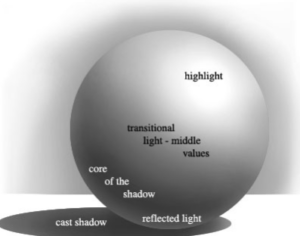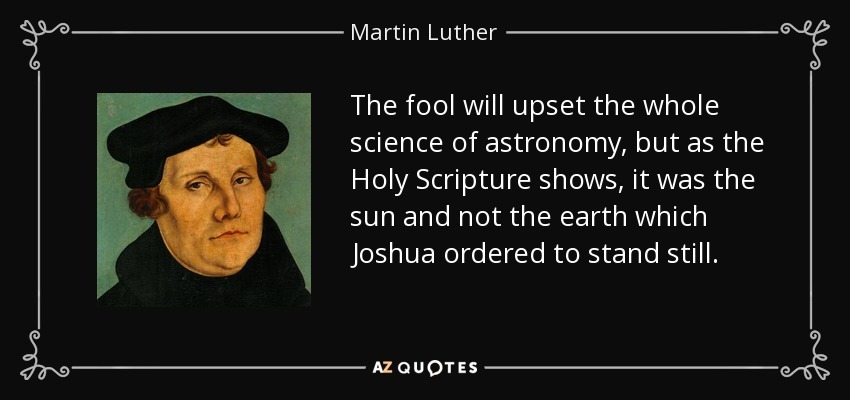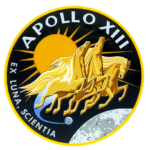Frustration can lead us to giving up on God and taking matters into our own hands, or it can lead to fruitfulness.
Have you ever wondered why God often chose barren women to become mothers of some of the important people in Jewish history? It cannot be mere coincidence. Our Lord is bound to be teaching us something very important. The recurring theme is for a man to marry a woman he dearly loves only to discover she cannot seem to conceive – Abraham & Sarah, Isaac & Rebecca, Jacob & Rachel, Elkanah & Hannah. In those days, God allowed men to have more than one wife, which is related to my point, because it set up a situation in which frustration, jealousy, mocking, and torment came into play. Hagar mocked Sarah, Leah mocked Rachel, and Peninnah did the same to Hannah. What were these barren women to do? One choice was to become bitter against God, but none of these women did that.
Satan is called the accuser of God’s people. (Revelation 12:10) His weapons against us include lies, threats, fear, mockery, and accusation. Since all of us are very imperfect people, there is plenty of ammunition for him to use against us. He is not above making lying accusations, either.
In the days when the Old Testament stories were lived out, the ability to have children was supremely important and used as a measurement of God’s blessing. Conversely, childlessness was viewed with disdain or pity as a sign of God’s judgment or lack of favor. Indeed, children are a blessing from the Lord in so many ways. They bring joy and fulfillment to their parents and others. In Old Testament times, they helped out with the enormous work load around the home and farm. In addition, children were viewed as a form of security in old age in the days before there were government programs for the elderly. Childlessness could leave you insecure and alone in your old age. Being childless also opened a couple up to being looked down upon by family, friends, and neighbors.
What could make matters worse for many barren women in those days was the presence of another wife who was able to bear children for their husband. The fruitful wife proved that the problem did not reside in the husband. It was all the “fault” of the barren wife. This would be difficult enough in itself, but, if the childbearing wife used her own fruitfulness to mock and accuse the barren wife, it could become intolerable, as in the cases of Abraham & Sarah, Jacob & Rachel, and Elkanah & Hannah. Satan is a mocker, and he seeks to motivate people to speak on his behalf. We should always be alert to the voice of the accuser, no matter who is doing the speaking. Sometimes we even accuse ourselves. Thankfully God is bigger than all of this. (1 John 3:20)
In every case mentioned in this article, the barren wives were dearly beloved by their husbands. This is very important, because fruitlessness is often interpreted as being a sign that God does not love us or has withdrawn his favor from us. Elkanah and Hannah provide the perfect example. Peninnah was the fruitful wife. Hannah was the greatly beloved barren wife. Here is what the Bible says about that triangular relationship.
Each year Elkanah would travel to Shiloh to worship and sacrifice to the LORD of Heaven’s Armies at the Tabernacle. The priests of the LORD at that time were the two sons of Eli—Hophni and Phinehas. 4 On the days Elkanah presented his sacrifice, he would give portions of the meat to Peninnah and each of her children. 5 And though he loved Hannah, he would give her only one choice portion because the LORD had given her no children. 6 So Peninnah would taunt Hannah and make fun of her because the LORD had kept her from having children. 7 Year after year it was the same—Peninnah would taunt Hannah as they went to the Tabernacle. Each time, Hannah would be reduced to tears and would not even eat. 8 “Why are you crying, Hannah?” Elkanah would ask. “Why aren’t you eating? Why be downhearted just because you have no children? You have me—isn’t that better than having ten sons?” 1 Samuel 1:3-8 (NLT)
Being her husband’s beloved was not enough for Hannah. She could not say that her husband rejected her because she did not give him children. Nothing could be further from the truth. This is an important point. There are many childless wives who are dearly loved by their husbands; nevertheless, their fruitlessness still gnaws at their souls.
There is something inside us that longs to be fruitful. This is true in the natural realm and the spiritual one.
In a sense, we give birth to spiritual children when we share the gospel and people are born again into God’s kingdom. When God uses us to be part of that miracle by being the one to act as a sort of midwife in the birthing process, it brings us great joy and fulfillment. If we are not able to lead anyone into a new life in Christ, over time it wears on us, especially if we see others having great success. We begin to ask the same questions Hannah asked. What’s wrong with me? Why doesn’t God give me success? Has God turned his back on me? What am I doing wrong?
Peninnah made matters infinitely worse by mocking her rival, just as Hagar mocked Sarah and Leah mocked Rachel.
Those of us who try to measure our own success or failures against the perceived failures or successes of others are not wise. Doing so is a form of legalism.
The Bible tells us not to measure ourselves by any other standard than Christ; yet, there is an inner drive in us to compare ourselves to others in an attempt to try to gauge how we are doing and, hopefully, feel better about ourselves. Sometimes, however, it boomerangs, producing frustration. Hannah fell into that trap. She was already frustrated, but Peninnah’s mockery threw gas on the fire. It got so bad that Hannah was inconsolable. Fortunately, she knew what to do. She took her frustration to God.
After they had eaten and drunk in Shiloh, Hannah rose. Now Eli the priest was sitting on the seat beside the doorpost of the temple of the LORD. 10 She was deeply distressed and prayed to the LORD and wept bitterly. 11 And she vowed a vow and said, “O LORD of hosts, if you will indeed look on the affliction of your servant and remember me and not forget your servant, but will give to your servant a son, then I will give him to the LORD all the days of his life, and no razor shall touch his head.” 1 Samuel 1:9-11 (ESV)
In every case I mentioned earlier, either the wife or the husband used their frustration over childlessness to turn to God for help. Doing this allows us to use frustration to make progress toward fruitfulness.
When things come easily to us, we may undervalue them or think we did it on our own. The more important a promise is to God’s plan, often there is a greater wait and struggle for us to receive a miracle by faith.
Abraham had to wait twenty-five years for God to fulfill his promise to give him a son. In the interim, he grew weary of waiting and attempted to “help” God by resorting to a man-made solution by producing a child with Sarah’s servant, Hagar. When we do that, we may end up with an “Ishmael,” an ongoing complication and source of sorrow. For another example, consider David, who had to wait about fifteen years after being anointed by the prophet Samuel to actually become king. He went through some very dark and lonely places along the way when he was probably tempted to “throw in the towel”.
Consider Joseph, about whom the Bible says:
The LORD'S promise tested him through fiery trials until his prediction came true. Psalm 105:19 (GW)
Those who fought in the American Revolution on the patriot side also went through some very dark and trying days. When things were extremely bleak and many were ready to give up, Thomas Paine printed a pamphlet that turned the tide, entitled The American Crisis. These memorable words are found in it.
THESE are the times that try men’s souls. The summer soldier and the sunshine patriot will, in this crisis, shrink from the service of their country; but he that stands it now, deserves the love and thanks of man and woman. Tyranny, like hell, is not easily conquered; yet we have this consolation with us, that the harder the conflict, the more glorious the triumph. What we obtain too cheap, we esteem too lightly: it is dearness only that gives every thing its value. Heaven knows how to put a proper price upon its goods; and it would be strange indeed if so celestial an article as FREEDOM should not be highly rated.
In Abraham’s case, much more was at stake than his having an heir: a nation was being birthed which would produce the Messiah and Lord. In Joseph’s situation, his own destiny was not the only thing God had in mind. Rather, Joseph would be instrumental in the preservation of his chosen people, the line of the Messiah. And God was going to use Hannah’s frustrated desire to have a son to bring into the world one of the great prophets of Israel, whom God would use to install its first and second kings.
God seems to enjoy bringing his greatest blessings in miraculous ways, against all odds, using very unlikely people whom the world despises and judges to be worthless.
Remember, dear brothers and sisters, that few of you were wise in the world’s eyes or powerful or wealthy when God called you. 27 Instead, God chose things the world considers foolish in order to shame those who think they are wise. And he chose things that are powerless to shame those who are powerful. 28 God chose things despised by the world, things counted as nothing at all, and used them to bring to nothing what the world considers important. 29 As a result, no one can ever boast in the presence of God. 1 Corinthians 1:26-29 (NLT)
So, if we are frustrated and discouraged that promises God made to us look as if they will never come to pass, we should not listen to the mocker and the accuser. Instead, like Hannah, let us seek the Lord.
But, like Hannah, we should be prepared to hold on to the fulfillment very loosely, because God may want to use the long awaited answer for his kingdom. If we give back to God that for which we have waited for such a long time, he will make it up to us. Hannah gave her long awaited son, Samuel, to God’s service, and God gave her more children to call her own. Imagine how proud and fulfilled she was to know her son was such an important man!
The point of this article is that we should never give on God’s promises, even if it is not our lot to experience their fulfillment in our lifetimes.
All these people died still believing what God had promised them. They did not receive what was promised, but they saw it all from a distance and welcomed it. They agreed that they were foreigners and nomads here on earth. Hebrews 11:13 (NLT)
Sometimes God wants us to be faithful so that the next generation can experience the fulfillment.
Moses got Israel through the wilderness, but Joshua led them into the Promised Land. Abraham fathered one son of promise, but that son and grandchildren would become the fathers of a multitude culminating in the Messiah. God’s promise to Abraham was fulfilled through his descendants. We are in this for the long haul, which may include multiple generations.
We cannot properly measure the value or significance of our lives and ministries. Only God can do that. Ours is to be faithful, possessing a loyalty and steadfastness that comes from being full of faith.
Let us not cave to discouragement, frustration, or fear. As Winston Churchill so famously said, “Never, never, never give up!” We must not give up on God’s promises. He is absolutely faithful to his Word. He will never let us down. He prizes faith, especially faith that keeps going when the chips are down. Who knows? God may use us to give birth to another miracle. In the meanwhile, we rest in knowing that we are beloved.













